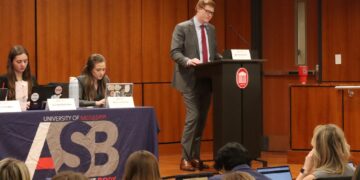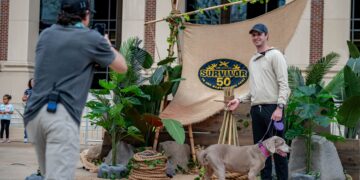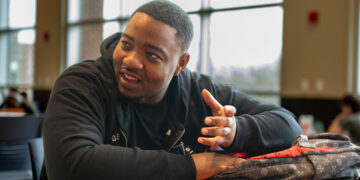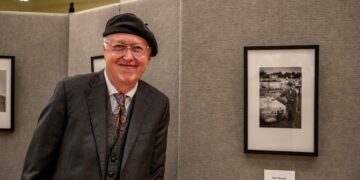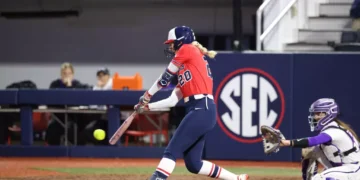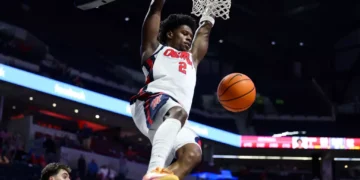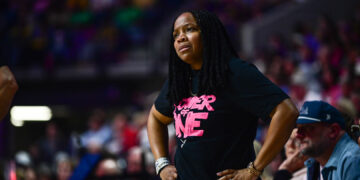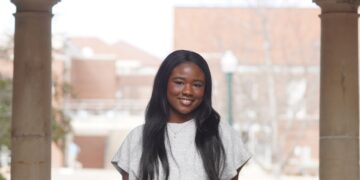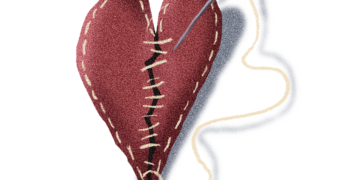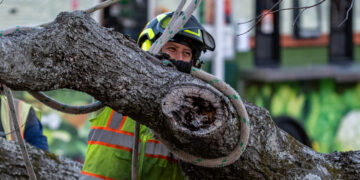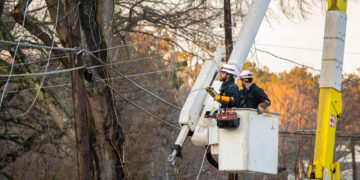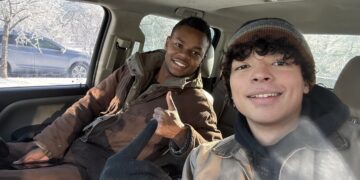Peter Hamby, head of news at Snapchat, will speak at 1 p.m. and 2:30 p.m. Thursday at the Overby Center.
Hamby will meet with Trent Lott Institute public policy students and with Meek School iournalism and integrated marketing communications students during his days on campus this week.
Hamby has an extensive background in political journalism and has worked at CNN as a producer and reporter. He covered the 2008 and 2012 presidential elections for CNN and was named a breakout reporter by Politico in 2012. He was also a fellow at Harvard’s Shorenstein Center on Media, Politics and Public Policy.
In spring 2015, Hamby left CNN to work for Snapchat as its news head. Hamby has his own series on Snapchat called “Good Luck America,” which focuses on covering the current administration’s politics. The series can be found in the “Discover” section of the app.
Senior general business major Dakota Bielat said he is looking forward to hearing Hamby speak and hopes he speaks about the effects social media has on politics.
“It’s a unique opportunity to have Peter Hamby speak on campus. I follow politics a lot, and I know he is a big social media and politics guy, so I hope he touches on that tomorrow,” Bielat said.
Senior integrated marketing communications major Brenna Clay said Ole Miss is the perfect place to host someone like Hamby.
“The Meek School is so well-known that it only makes sense to have someone like Hamby, a news editor for a thriving social media app, to speak here,” Clay said. “Not only will it be cool for students to hear him speak, but it will be a great experience for him, too, because he will be speaking to students that want to follow his same career path.”
On Sept. 8, Snapchat announced it would be expanding its “Publisher Stories” section to include school newspapers by having a “Campus Publisher Stories” section.
“School newspapers play a critical role in informing and entertaining their campus communities, and they are often where the many leading journalists and editors that we work with got their start,” Snapchat said in a statement.
Clay said that if the university is able to partner with Snapchat and use Campus Publisher Stories, it would be a game-changer for how students receive news.
“I think the real selling point is that it would be instant information that you can get right away. To be honest, the only time I pick up the paper and read through it is when I find one when I’m bored, so I think a lot of students would be for using Snapchat to find out what’s going on around campus,” Clay said.
While the university has not yet partnered with Snapchat for Campus Publisher Stories, Ji Hoon Heo, instructional assistant professor of journalism, said it would get more students interested in news on campus.
“I don’t think we are part of the Campus Publisher program yet, but I do think it could impact in terms of reach for the campus. According to a study done by Pew Research, over 80 percent of Snapchat users are 18-24 years old, so that would help reach the audience in ways we weren’t able to in the past,” Heo said.
Robin Street, a senior lecturer in journalism, said she thinks there is a strong possibility that the majority of all news will eventually be online.
“Many of us do wonder about the future of journalism and where it is headed. I do think there is a strong possibility that newspapers will one day be all online,” Street said. “One thing that concerns me is that today’s non-journalism majors don’t seem to understand where news comes from.”
Street said she is also concerned about “fake news” that can cycle through social media and that she wishes there was a way to screen it.
“I am very concerned about the fake news that appears on social media. People pretend to be from reputable news sources (and) post fake items online, and people believe them,” Street said. “We very much need journalists to help uncover and report the truth in a concise, easily understandable and trustworthy way.”
Social media apps including Facebook, Twitter and Snapchat have certainly made an impact on how people get news today. Senior journalism major Kailen Locke said social media allows more people to be engaged.
“Social media has completely changed the way we get our news and lets us access news at any time or place. It lets people from all around the world contribute their perspectives and helps us to get a better understanding of what is happening in the world,” Locke said. “When a speaker like Peter Hamby comes to visit, I think it’s important that students take full advantage of the opportunity to learn as much as they can.”

